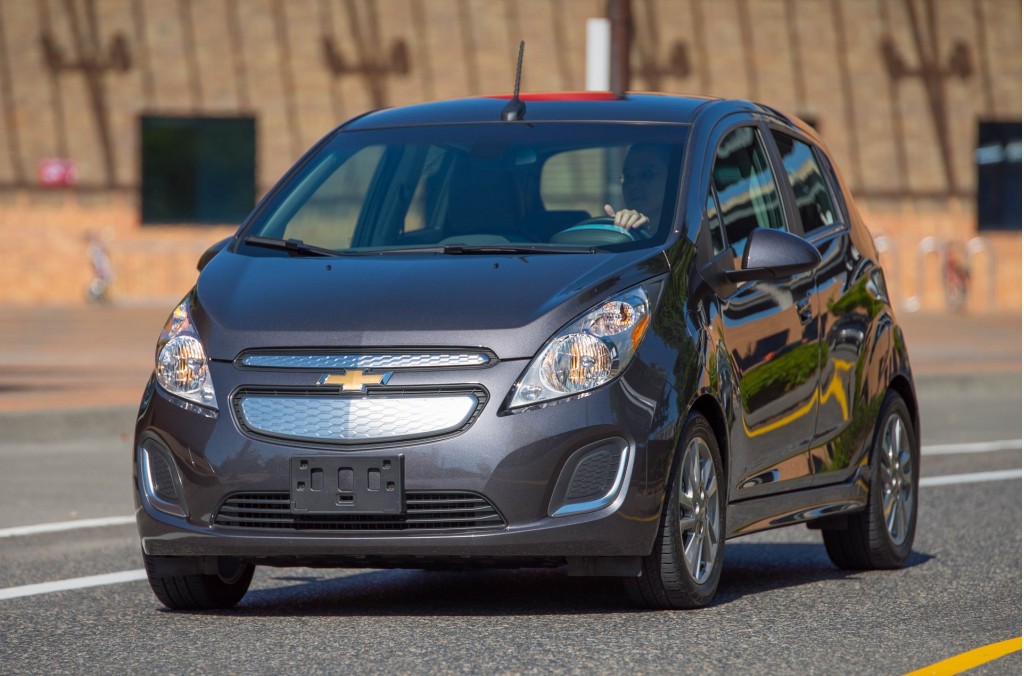Three major companies compete today to supply the lithium-ion cells that make up the bulk of today's electric-car battery market.
Panasonic sells primarily to Tesla Motors, while AESC is a joint venture half owned by Nissan.
Then there's LG Chem, which sells lithium-ion batteries to quite a number of different car manufacturers.
DON'T MISS: Why LG Chem Leads In Electric-Car Batteries: Materials Science, It Says
That could allow the Korean company to surpass its rivals in the electric-car battery business eventually, according to a new report from Lux Research (via Charged EVs).
The research firm believes Panasonic is the current leader, with a 39-percent market share.
It also suggests that the Japanese company may expand its share to 51 percent between now and 2020--or maybe not.

2014 Chevrolet Spark EV - Driven, July 2014 (NWAPA Drive Revolution)
The report claims Panasonic's reliance on Tesla as its main outlet for automotive lithium-ion cells may ultimately prove to be a disadvantage.
While both Panasonic and AESC have a high total output of electric-car batteries so far, LG Chem cells can be found in a much wider array of cars.
They are currently used in vehicles from Audi, Chevrolet, Ford, Hyundai, Renault, Smart, Volkswagen, Volvo, and others.
MORE: Battery Maker LG Chem: Biggest Electric-Car Winner Of All? (Aug 2014)
LG Chem is also expected to supply cells for the 2017 Chevrolet Bolt EV--a 200-mile electric car that will sell for $37,500, before incentives.
Meanwhile, Panasonic will oversee cell production at Tesla's Nevada "Gigafactory" that will supply batteries for the carmaker's 200-mile, $35,000 Model 3, as well as for its line of home energy-storage products.
AESC--which uses battery technology from Japanese firm NEC--has gotten by so far supplying cells to the world's best-selling electric car, the Nissan Leaf.

AESC lithium-ion cell
But that company is falling behind in terms of cell development, Lux Research claims, potentially creating an opening for LG Chem to take its place.
Nissan's alliance partner, Renault, already gets some of its batteries from the Korean company.
Carlos Ghosn--CEO of the two carmakers--has said that Nissan might seek a new battery supplier for the second-generation Leaf.
The company entered talks with LG Chem late last year, but has said the matter is still open.

Lithium-ion cell modules transferred into battery pack at Nissan plant in Smyrna, Tennessee
In addition to LG Chem and Panasonic, Korean electronics company Samsung SDI is also reportedly trying to increase its presence in the electric-car market.
Those "big three" are engaged in an all-out war over the segment, Lux Research claims.
Meanwhile, numerous smaller firms hope to carve out a niche as well, although the big Korean and Japanese companies will likely retain the largest share.
They're all fighting for a place in what could be a $30 billion business by 2020, according to Lux.
_______________________________________________












